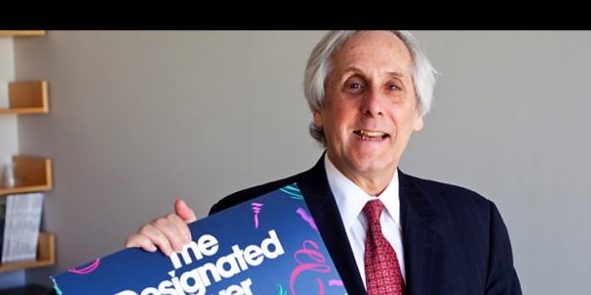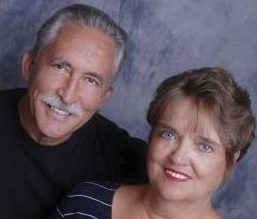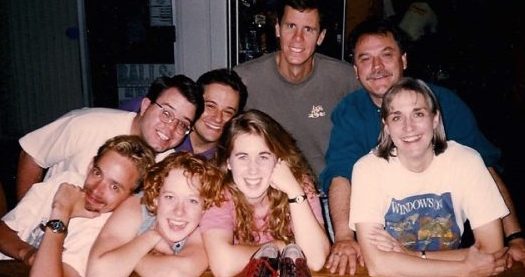Grumpiness and Stupidity are Remarkably Contagious Old-timers will remember that the Osmonds topped the pop charts in 1971 when they sang, One bad apple don’t spoil the whole bunch.” But when it comes to leading others to work together, this mantra just isn’t so. On the contrary, grumpiness and stupidity are remarkably contagious.
Read moreTechnology can be used for great evil or for great good. Joseph Goebbels, Propaganda Minister for the Third Reich in Nazi Germany from 1933 to 1945, was one of Adolf Hitler’s closest associates. Goebbels shared Hitler’s virulent anti-Semitism, and avidly supported the extermination of Jews. Perhaps Goebbels was best known for his stirring propaganda speeches that were broadcast via radio throughout Europe. He once stated, “It would not have been possible for us to take power or to use it in the ways we have without the radio.” His influence through the use of available technology led millions to tolerate mass genocide. But the technology Goebbels intended for evil would be used by another leader for great good.
Read moreUsing Stories to Communicate A recent group conversation was about about the use of stories to communicate truth. One person in the group said, “No way. We cannot entrust truth to be communicated through a story. We must convey facts and principles and concepts.” This statement comes from common myths and misunderstandings that prevent many people from viewing story as a viable means of communicating truth. When you mention the word “story,” many people think of nursery tales or the kiddy corner of a bookstore. Stories are perceived as “just for fun” and are often relegated to children’s bedtime or elementary school.
Read more“Healthy growth” is an arresting notion. If “growth” is preceded by “healthy,” then people, communities, and organizations flourish.
Read more“Worldview” is a collection of assumptions people hold about the world they live in and their place in it. More specifically, our worldview can be defined as a set of subconscious mental images that guides what we believe to be real, what we perceive to be important, and how we behave toward others. So how does a person’s worldview form? And how can one’s worldview change?
Read moreYears ago a friend gave me a picture book that promised to enable the viewer to “see what is invisible.” It was my first experience with stereograms, those incredible 3D images that look like a collection of jumbled shapes and colors, until you adjust your focus. At first it was frustrating. I really had to train my eyes to see in another way, to look beyond the two-dimensional surface. But once I did, all of a sudden the hidden image “appears” in 3D right before my eyes.
Read more“Designated Driver Jay Winsten is an associate dean at The Harvard School of Public Health. He was the driving force behind the Harvard Alcohol Project, which introduced and popularized the social concept of the “designated driver” in the United States. In the late 1980s, Winsten, learned about the “designated driver” norm that was prevalent in Scandinavian countries. At the time the norm did not exist in the United States; nobody knew what a designated driver was. But within three years after Winsten launched the “Designated Driver” campaign, 90% of Americans were familiar with the term. Thirty-seven percent of those polled said they had acted as a designated driver, and 54% of frequent drinkers indicated that they had been driven home by a designated driver. How did Winsten do that? What was the secret for his phenomenal success?
Read moreNobel prize-winning physicist Richard Feynman was asked to oversee a group of engineers who were tasked to perform a seemingly endless series of tedious calculations. The math wasn’t especially difficult for these engineers, but the work proceeded very slowly, and was full of errors. Feynman realized the problem wasn’t the math, but that the engineers were disengaged. He finally convinced his superiors to let the engineers in on the secret – they were performing calculations that would enable them to complete the race to build the atomic bomb before the Germans did. Their work would win the war. From that point forward, the engineers worked 10 times faster than before, with few mistakes and with fierce commitment. Does your leadership provide people with meaning that matters? The question might sound more like this: What is the overarching purpose that sustains our collective commitment to excellence in the tedious, less glamorous tasks of our day-to-day work? Does the work itself matter to us?
Read moreCarpus and Papylus In the second century after Christ, Carpus and Papylus were brought before a governor in Rome and charged with the “crime” of being Christian. The governor of the district had discovered that Carpus and Papylus did not celebrate the pagan festivals. The governor ordered the two men to be arrested and commanded them to accept the Roman pagan religion. The men replied that they would never worship false gods.
Read moreA group of church leaders are dynamically impacting a hostile tribe of eight million people in South Asia. They are putting their lives on the line every day as they proclaim and demonstrate the Gospel. And most of them cannot read. Sound familiar?
Read moreAnnette Simmons’ Whoever Tells the Best Story Wins is the latest in a string of recent books that advance the lesson that Wicked demonstrates: stories have powerful potential to shape people.
Read moreMost leaders say they want to finish well. Yet the majority don’t. Money, sex, pride, power, family problems, and stagnation are big barriers facing leaders who want to finish well. But what causes leaders to fall prey to these pitfalls? Why do successful, talented, and bright leaders so often sabotage their professional and personal lives through immoral and destructive behavior?
Read moreToday finds me sitting by the Atlantic’s seashore in The Gambia, West Africa. Children are kicking up sand as they play soccer on the beach. They seem oblivious to this week’s FIFA scandal that has cast suspicion over just about every major decision in the soccer world over the past twenty-five years. Eighteen officials are charged with offenses including racketeering, fraud, and money laundering. Their cozy lifestyles of kickbacks and obscene per diems are finally on global display. Time has its insistent way of bringing truth to light.
Read moreA middle-aged woman complained on Facebook about the lousy service she received at a local hot dog counter. She wrote, “The hot dogs were delicious, but the waiter was down-right rude.” She continued, “I’ll be looking for hot dogs someplace else.” Her post got lots of supportive responses. In the “Worthiness Era,” good products must be matched by good behavior.
We’ve heard enough news of Fortune 500 companies that shirk taxes while padding profits. Firms that make a widget, rake in revenue, but foul the planet. CEOs abuse their privilege, then bail out with a multi-million dollar parachute. Is this just more evidence that bad guys finish first? Maybe. But a different story is unfolding.
Read moreThe real leaders in many organizations are not obvious by their positions. Often they are hidden, but identifying them for development and future leadership is critical to the organization’s success. Based on observation in diverse organizational sectors that span the globe, here are four indicators to spot leadership potential. Identifying people for leadership roles who possess these latent abilities – even if they are still in raw form – is crucial since these characteristics are more difficult to cultivate within adults. Four indicators to spot leadership potential:
Read moreMost of us claim to be repulsed by toxic leaders, those who engage in destructive behaviors that result in serious and enduring harm to their followers. But the troubling reality is that people often follow them, and remain under their spell even when we clearly know their corruption and cruelty.
Read moreJ. Edgar Hoover A 2011 film featured Leonardo DiCaprio as J. Edgar Hoover, the FBI’s Director for nearly fifty years. DiCaprio aptly depicted this 20th century symbol of unbridled political power whose abusive leadership was well known. Yet presidents, the press, and ordinary citizens venerated Hoover even as he perpetrated reprehensible acts, including blackmailing politicians and railroading innocent people to protect informants. Today the FBI building in Washington, D.C. still proudly bears his name. Hoover’s legacy follows a predictable response pattern to leaders who manipulate, mistreat, and undermine their followers: we frequently lionize them. Toxic Leaders Most people claim they abhor toxic leaders. Yet we often follow them – from the Catholic Church’s Cardinal Bernard Law, to the Italian former prime minister Silvio Berlusconi, to “junk bond king” Michael Milken – and remain under their spell even when we clearly know their corruption and cruelty.
Read moreI was teaching Emotional Intelligence (EQ) to a group of Christian executives. The attendees were gathered from various locations throughout Europe. I took my usual approach to present the topic, explaining that leaders who adjust their behavior to the needs of those they lead – self-regulation – are better at motivating others. I demonstrated through research and several true stories that this leadership behavior often generates a greater level of worker satisfaction that results in a higher level of productivity for the organization. As I labored on, Branko, who grew up under the communist regime in Serbia, became visibly agitated. He knows well the communist philosophy, tactics, and terminology of motivation. Finally, when he could no longer endure my presentation, he raised his hand and blurted out, “Your approach to Christian leadership is severely flawed. Your teaching implies that our ultimate motivation for practicing self-regulation is to get more productivity out of people so that the leaders and their organizations can be more successful.” “Yes,” I said “that’s correct.” Do you have a problem with that?” “Yes,” Branko said, “I have a big problem with that. The kind of leadership you are proposing is virtually the same as the ‘carrot and stick’ approach that our communist dictators have used for decades to oppress the masses.”
Read moreThe magical ride of the Wisconsin Badgers included a national semifinal victory over the previously undefeated Kentucky Wildcats. Although their season ended in a heartbreaking loss for the national championship, the story of Wisconsin’s coach and most celebrated player is one for the record books. After Catholic prep school in Lisle, Illinois, Frank Kaminski came to the University of Wisconsin to play basketball for Coach Bo Ryan. As a freshman, Kaminski was a lackluster performer. His season-high scoring effort was nine points. Kaminski’s second season was pretty much a carbon copy of the first. He averaged 4.2 points and 1.8 rebounds per game. He mostly rode the bench. But Coach Ryan spotted promise in the shy, gangly kid from Lisle. So Ryan pushed him to give nothing less than his best. He made Kaminsky sweat and fight for a starter role. And Ryan communicated to Frank that he could be great. Ryan’s investment paid off. At the end of Kaminsky’s junior season, he was named to the first team All-Big Ten. He scored 28 points and had 11 rebounds as Wisconsin defeated #1 seed Arizona to advance to the Final Four.
Read moreBenchmarking is an aspect of strategic planning that has been widely accepted in recent years. It is the practice of comparing one’s organizational products or performance to others considered industry bests. Much can be said in its advocacy, but it has one potentially serious liability: benchmarking can result in vanilla ice cream.
Read moreJim Bowman, communication visionary and founder of Scriptures in Use, has put another dent in the universe. Jim was a successful advertising executive with Tucson Newspapers. His wife Carla was a tenured teacher in the Tucson school system. They retired from their careers in 1987 and went as missionaries to serve the native peoples of Latin America.
Read moreHillary Clinton’s private email server “scandal” has dominated most news outlets this week. In her role as Secretary of State, all emails on that server were supposed to be a matter of public record. Her resistance to turn over some of those emails has drawn sharp criticism from both sides of the political aisle. Julie Pace, AP White House correspondent wrote, “It’s difficult for [Hillary Clinton’s] complicated explanations about allegations to compete with the simplicity of political perception.” Her response signals a blurred lens through which she sees reality.
Read moreHuman conscience acts like a judge, alternately accusing and defending us. Leaders rely on it. If the lens of conscience is clear, its job is to tap us on the shoulder and point out whether our walk matches our talk. In a perfect world, conscience acts as a safeguard to let me know I’m on track or as an arbiter to tell me I’m off course. Unfortunately, in real time, leadership gets complex and messy. The leader’s lens of conscience bends with the warp and woof of life.
Read moreFleas can jump up to 200 times their size. Put them in a jar with a lid on it, and they are soon jumping only as high as they can without hitting the lid. One Sunday I was the guest speaker at a small church. I went to the pastor’s home for the noon meal after the service. As we sat at the table, I could tell that this lunch was different; the pastor’s wife had set out the special napkins and silverware. The three children were on their best behavior. The older son caught my attention. He was a tall, lanky kid with cerebral palsy. After getting acquainted, I said to him, “Alan, what subjects do you like in high school?” With a smile, he answered, “Algebra. I love Algebra.” I continued, “What do you want to do after you graduate from high school?” With some hesitation, he responded, “Someday I’d like to be a math teacher.” I said, “So where do you want to go to college?” His father jumped in, “Alan’s handicapped; he’s not going to college.” The light in Alan’s face drained away. Influential people often put a lid on those they lead.
Read moreMinistry leaders from several African nations recently told me that story plays a vital role both in shaping and in preserving their cultures. Like all communities, most of their shared core beliefs are passed from generation to generation through true stories, myths, and songs. These narratives embody the essence of what they view as important to their children and grandchildren. Even as they welcome education that brings socio-economic advancement, these leaders are concerned that they avoid the mistake of teaching their succeeding generations with a literate, conceptual approach that disconnects them from their own story.
Read moreMy wife and daughter are hearing-impaired. They inherited a deficiency of the central nervous system that affects their hearing. Most people do not notice their impairment because they listen so well. With the assistance of hearing aids and lip-reading, both are expert listeners.
Another member of our family is listening-impaired. The doc says there is nothing wrong with my hearing. But listening has been an impairment I’ve been working to overcome all of my adult life.
Read moreDavid Burnham, renowned behavior science researcher and partner of the Burnham Rosen Group, states that the charismatic, visionary leader is being superceded by the leader who: (1) brings a focus on creating accountability within others, (2) cedes decision making to others, (3) encourages experimentation and flexibility, and (4) concentrates on building a shared sense of purpose and shared values. The formula for leadership success today is taking its script from the ancient past. The 21st century is finally catching up to Jesus’ paradigm for leading.
Read moreLeaders are mistaken to think that people are not motivated. Rather, people are simply longing for needs they cannot name. Twenty years ago, the late Chris Farley performed a comedy routine on Saturday Night Live. The sketch depicted a family with two delinquent teenagers. Dad hires a speaker, “Matt Foley,” to motivate his kids into better behavior. In addition to his disheveled and overweight appearance, Matt shouts insults at the teenagers, frequently loses his temper, and wallows in self-pity. Foley’s trademark line is warning the teenagers that they could end up like himself, being “35 years old, eating a steady diet of government cheese, and living in a van down by the river!” The routine concludes when his speech has impacted the teenagers, but only because they don’t want to be like him.
Read moreExperience can be a curse. Being new and naive can be an asset. New studies show that constant learning is more valuable than mastery. Conventional wisdom suggests that mastering a discipline would provide the knowledge worker with a competitive advantage. But the opposite is actually true. We are often at our best when we do something for the first time. We often see it on the athletic field, but it also plays out in the workplace. Leadership expert Liz Wiseman and her team of researchers studied almost 400 organizational scenarios, comparing the performance of productive veterans versus productive rookies. They defined a rookie as “someone who had never done that type of work” and a veteran as “someone who had previous experience with that type of work.” Here’s what they found:
Read moreShark Tank is one of TV’s most watched programs The show’s popularity taps into our surging attraction for people with fresh products and plans for a morphing world. These entrepreneurs fuel the future for successful businesses, great societies, and Kingdom advancement.
Read moreAs we are at the end our series, two questions are asked:
- We’ve been looking at all of these streams as integrated with each other. We have said that healthy spiritual leadership is more likely when leaders set out to make ALL these streams an integral part of their lives and leadership. If integration is our goal, what happens if any one of these streams is practiced in isolation from any of the other streams? In other words, what are potential weaknesses of the Compassionate Life stream, for example, if practiced in isolation from the New Life, Abiding Life, and Empowered Life?
- So, what? Why does all this matter? What does all this really mean for me as a leader?
Their names were Carpus and Papylus. And they demonstrated the Witnessing Life.
In A.D. 165, Carpus and Papylus were brought before a governor in Rome and charged with the “crime” of being Christian. The governor of the district had discovered that Carpus and Papylus did not celebrate the pagan festivals. He ordered the men to be arrested and commanded them to accept the Roman pagan religion. The men replied that they would never worship false gods.
Carpus, who was a leader in the church. Not even torture could persuade him to change his mind. He simply kept repeating, “I am a Christian and because of my faith and the name of our Lord Jesus Christ I cannot become one of you.”
Papylus was a wealthy man with many children. Papylus said, “I have served God since my youth, I have never sacrificed to idols. I am a Christian. You cannot learn anything else from me. There is nothing I can say which is greater or more wonderful than this.”
Both Carpus and Papylus were burned alive.
Read moreWhat about terrorists? Yesterday we were challenged to look at The Compassionate Life a little closer. In the attempt to write a modern day parable similar to The Good Samaritan, we look at different kinds of people that cross our paths every day. I believe God brings certain people across our path for a reason, but sometimes we have to go TO them. As we think of these people, though, we ask ourselves the hard question: “what type of person is the hardest for me to extend compassion to?” And what does exactly does it mean to live the Compassionate Life?
Read moreJesus chose to communicate “The Compassionate Life.”
When Jesus saw the crowds “he had compassion for them.” (Matthew 9:36) With a broken heart he said aloud to whomever was listening, “The harvest is plentiful, but the laborers are few.” Later, he spoke of ministering to “The Least of These” (Matthew 25), demonstrating how we are called to help those that cannot help us in return.
Read moreThere is an ailment that is infecting many well-intentioned Christian people around the world, including myself. These people are good people. They are generous people. And they are sacrificial people. But this disease is infecting them.
Read morePeople know this pictured spiritual leader as A.B. Simpson, especially those who associate themselves with a Christian denomination called the Christian & Missionary Alliance. But, before that he was simply a young man named Albert. And Albert was one who exemplified The Empowered Life.
Read moreYesterday we started examining The Empowered Life. We acknowledge that we are tired of living this upright kind of life and that we have come to the end of ourselves. We say with our mouths that we believe in the power of the Holy Spirit, but how much do we really hold that to be real? The fact is, Jesus – through the sanctifying Spirit – is able to do for us what we cannot do for ourselves. Not only that, He can empower us to do great things for the Kingdom, much as he did at Pentecost for a group of ordinary disciples. But this can happen nothing short of an encounter with the Supernatural.
Read moreIs anyone tired? Not the kind of tired that comes from staying up late last night or from having a busy week at work. I’m talking about the kind of tired that is bone-weary, the kind of tired that says, “I’m ready for the next world. Jesus, take me home now.” Do you feel that you are sludging along in a field of molasses, weary in this struggle of just trying to live life, let alone an “upright” life? The kind of tired that no amount of exercise or eating right or developing good habits or other people can solve? I know I experience that. Every single day. Not hopelessness, just resignation. We’ve heard it sung from the church risers and we’ve heard it shouted from the pulpit: Jesus, through the empowering, sanctifying Holy Spirit, is able to do for us what we are not able to do for ourselves. He is able to empower us when we come to the end of ourselves. We know that in our heads and say it with our lips, but how well do we embrace that in our hearts?
Read moreThe last few days we’ve been talking about the New Life. Yesterday we heard John’s story. Now we’re moving on to the second stream of Spiritual Leadership: the Abiding Life. What exactly do we mean when we talk about the Abiding Life? Basically our main idea is this: Both the receiving of the sacraments (baptism and communion) and human intuition can be means by which believers experience intimacy with God; however, both sacrament and intuition can potentially lead to idolatry. Neither is a guarantor of being a disciple of Jesus Christ. Ultimately God is the initiator, and we are respondents, not the other way around. We are in this journey of an abiding life with God.
Read more


































